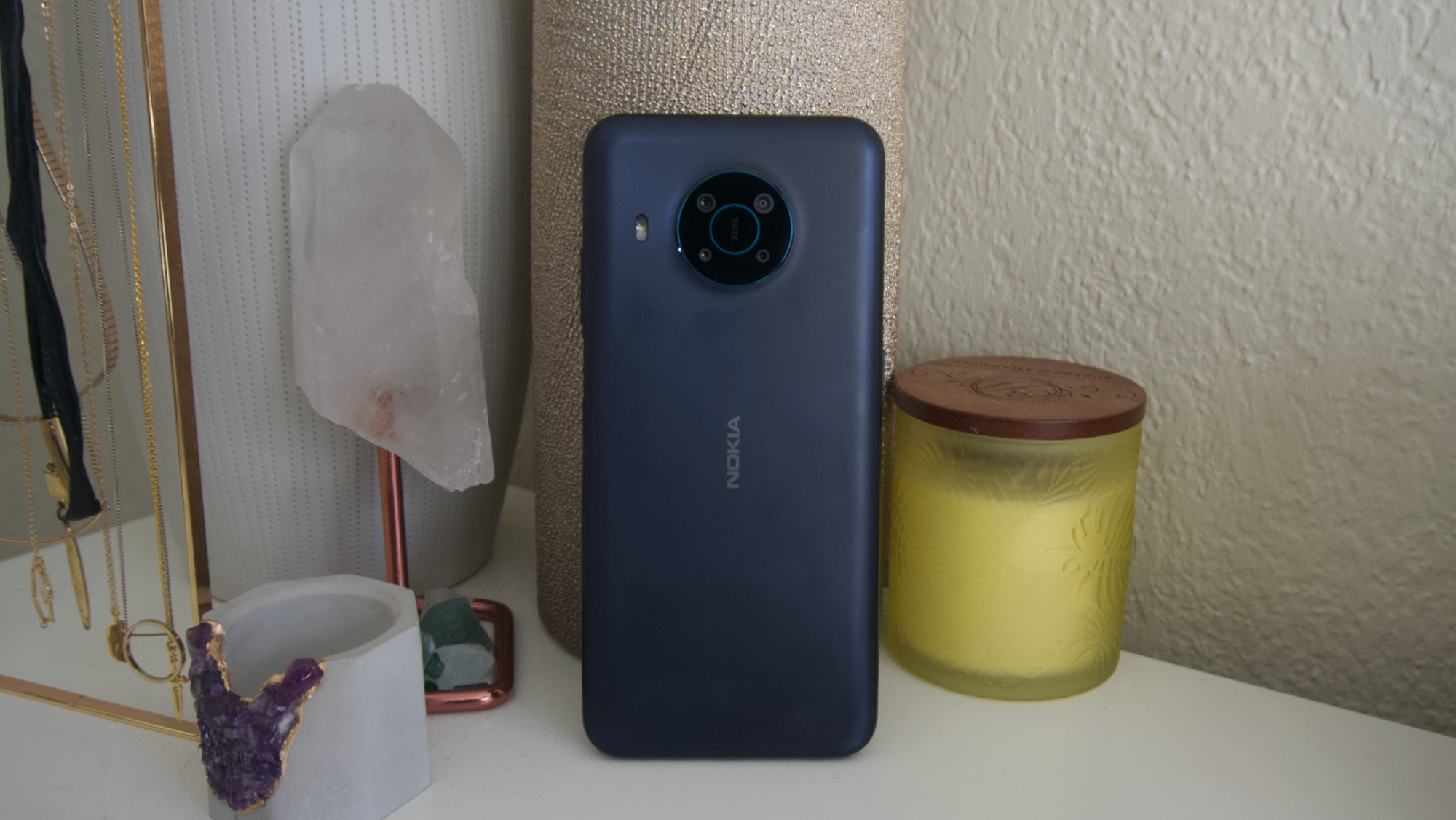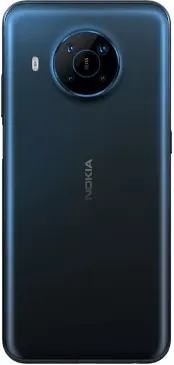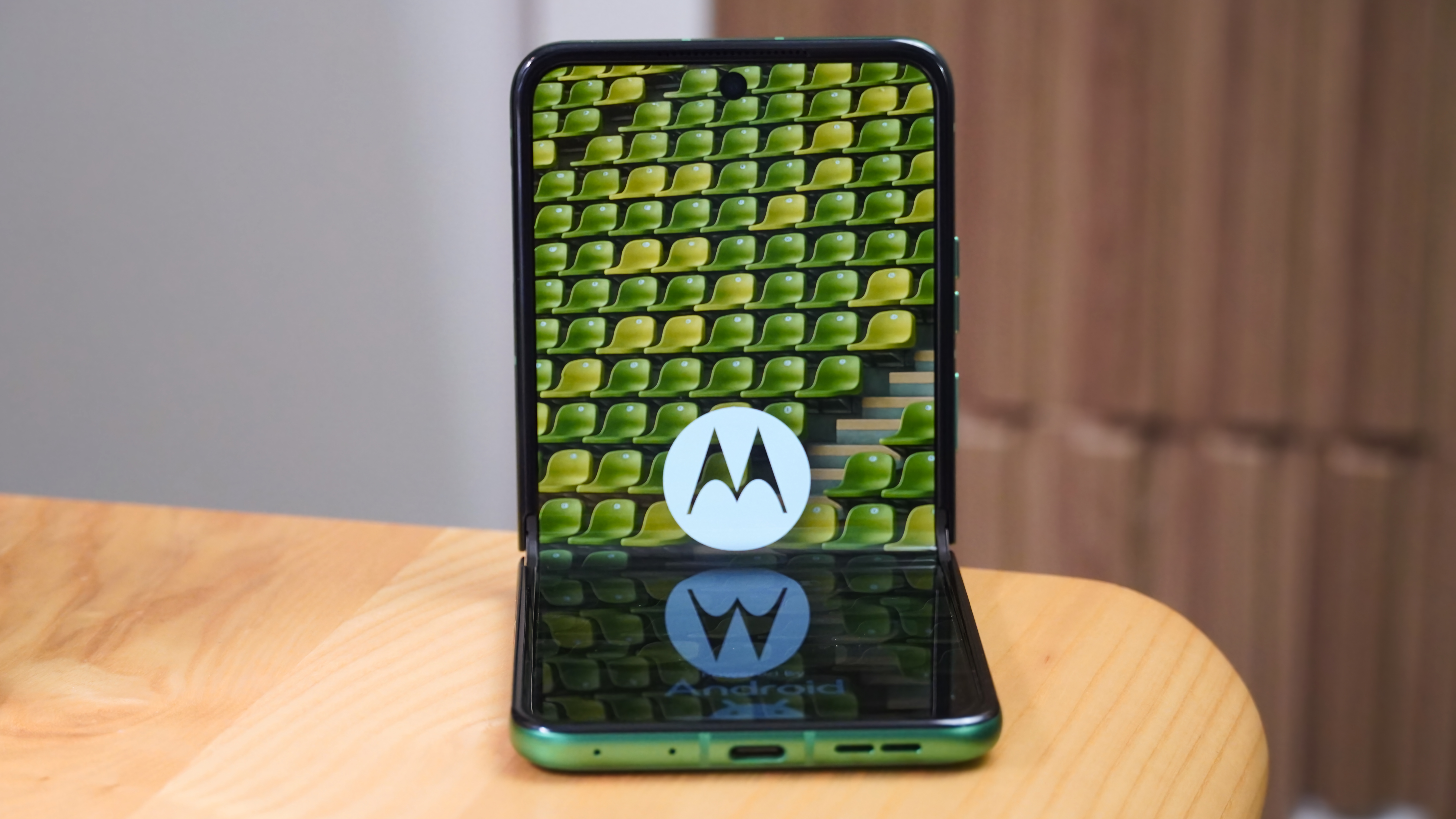Android Central Verdict
As an affordable 5G handset for T-Mobile customers, the Nokia X100 stands its ground against all the other current options. Visual and audio quality go beyond what you'd expect in a $250 phone, while the battery life should easily last you through the day and night. It falls short in the same areas as most budget phones — but its lack of future updates is its Achilles' heel.
Pros
- +
Solid budget performance with 5G
- +
Full HD display
- +
1TB microSD slot
- +
3.5mm headphone jack
- +
Solid battery life
- +
Good main/selfie cams
Cons
- -
T-Mobile exclusive
- -
No planned Android 12 upgrade
- -
No IP rating
- -
You won't use ultra-wide/ macro cams
Why you can trust Android Central
HMD Global has pivoted its focus away from flagships and toward budget Android phones in recent years, many of which are targeted towards U.S. carriers. The Nokia X100 is a T-Mobile-exclusive smartphone with a confusing name, given it has similar specs to other lower-numbered models like the Nokia X20 and Nokia G50.
Name aside, it's an affordable 5G phone with features like NFC, a 3.5mm headphone jack, and microSD card slot — all fairly rare for this price category. Similarly, the performance matches up well against other under-$300 Android phones, as does the 6.67-inch Full HD display and loud OZO audio speakers.
That being said, any budget phone has to make compromises somewhere, and this phone has its fair share. Our Nokia X100 review should help you decide if you can live with those, or if another budget phone fits your needs better.
Price and availability
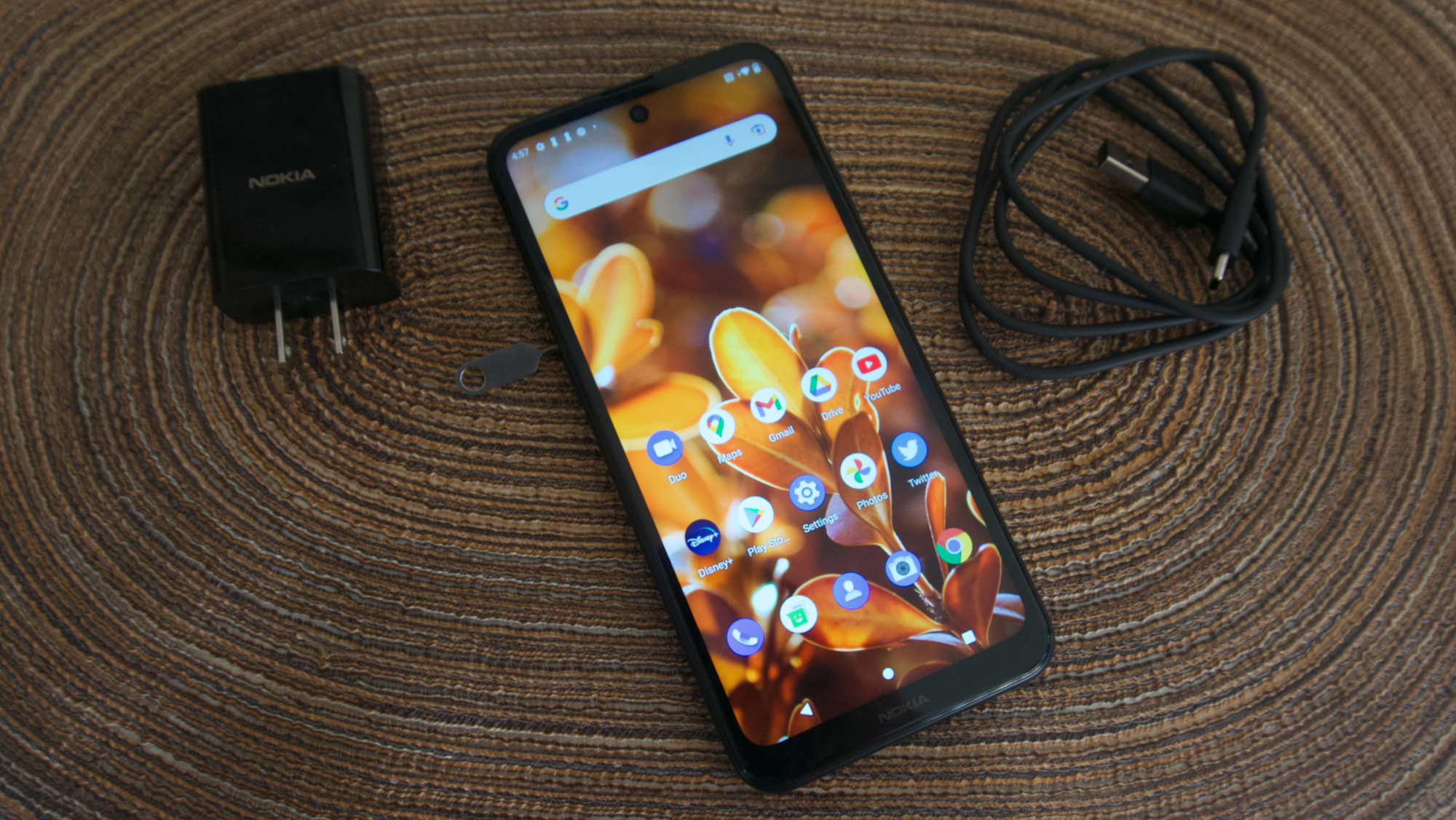
HMD Global released the Nokia X100 on November 19, 2021, as an exclusive 5G model with T-Mobile or Metro by T-Mobile in the United States. It ships in just one color, Midnight Blue, and is only available in the 6GB/128GB memory configuration.
You can receive the Nokia X100 for "free" from T-Mobile if you add a new line of service; you simply purchase it on a monthly plan and pay tax on the phone — about $25 — and you'll receive 24 monthly bill credits that add up to the full price of the phone. Otherwise, the X100 costs $252.
This same deal applies to other budget phones like the Galaxy A32, OnePlus Nord N200 5G, Moto G Stylus 5G, and TCL 30 XE 5G.
The Nokia X100 comes with an 18W charger, a compatible USB-C cable, and a SIM pin.
Get the latest news from Android Central, your trusted companion in the world of Android
What you'll like
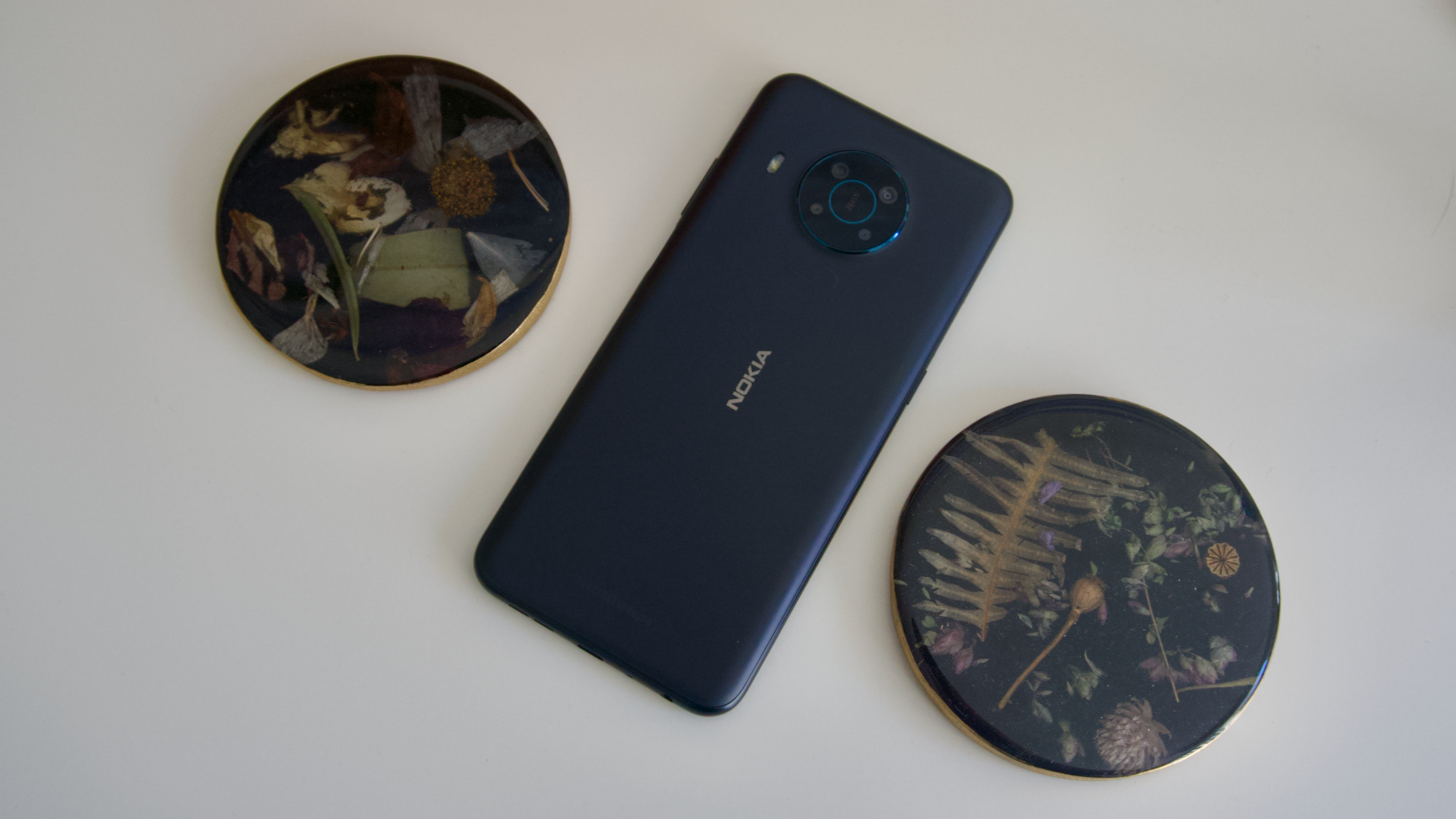
With most budget Android phones, adding 5G comes with a trade-off like a resolution or performance downgrade unless you're willing to climb up to the $400+ range. With the Nokia X100, it keeps most of the essentials that I'd expect out of any smartphone, starting with lag-free performance.
Display: 6.67-inch (20:9), 1080 x 2400, about 395 PPI
Processor: Snapdragon 480 5G
RAM: 6GB
Storage: 128GB, 1TB microSD slot
OS: Android 11 (no planned updates)
Security updates: 2 years (late 2023)
Rear Cameras: 48 MP Main + 5 MP Ultrawide + 2 MP Depth + 2 MP Macro
Front Camera: 16MP
Connectivity: Bluetooth 5.1, USB-C 2.0, NFC, 3.5mm, 802.11 b/g/n/ac MU-MIMO, 2x2 MIMO
5G bands: n71, n66, n25, n41
Battery: 4,470 mAh
Charging: 18W, Quick Charge 3.0
Protection: Gorilla Glass 3, no IP rating
Security: Fingerprint sensor on power button, Face Unlock
Dimensions: 3.14" x 6.75" x 0.36", 7.65oz
The Snapdragon 480 5G paired with 6GB of RAM will run most daily driver apps without any major delay. Opening an app or a new tab will typically take a second or two, but with nowhere near the lag I've seen on most other budget phones. And once open, apps very rarely lagged even when swapping quickly between them or opening ten Chrome tabs.
For context, most phones in this price range either offer 6GB of RAM and 4G or 4GB and 5G. Exhibit A is the Samsung Galaxy A32, which drops from 6GB/128GB with a 90Hz FHD AMOLED display to 4GB/64GB and a 60Hz HD TFT display in exchange for a 5G chip. As for the OnePlus Nord N200 5G, it offers the same Snapdragon 480 chipset as the X100, only paired with less RAM; despite that, our reviewer was generally satisfied with its daily performance.
In my case, the X100 performed similarly to the Nokia XR20, a mid-range rugged phone with the same Snapdragon 480 / 6GB combo as the X100. In both cases, I could play battle royale games like PUBG on high graphical settings without much issue beyond the initial load time, and popular Play Pass games like Dead Cells and Kingdom Rush Frontiers ran smoothly.
Other tasks, from Face Unlock to calling Google Assistant, trigger in a snap, so you won't notice the delay. The same goes for taking photos, where other budget phones will lag between tapping the shutter and capturing the shot.

I also appreciated the Full HD display, especially compared to the Nokia G20 and its HD display. While the difference between QHD and FHD isn't that noticeable to my eyes, the FHD-to-HD drop-off truly makes a phone feel cheap.
The pixel-rich X100 display offers competently vibrant and accurate colors. Though it can't match a flagship phone for HDR content, streaming The Book of Boba Fett made Tatooine's cantina look lively and its controversial biker teens suitably colorful. And while playing games like Kingdom Rush with tiny allies and enemies, the 395 pixels per inch (PPI) ensured I never lost any detail.
At 6.67 inches, this phone will appeal to folks who prioritize size over portability. The rounded edges and noticeable bezels ensure your fingers can grip comfortably along the edge without fear of false touches or hard edges digging into your skin. Anyone with medium-to-large hands should have no trouble holding it.
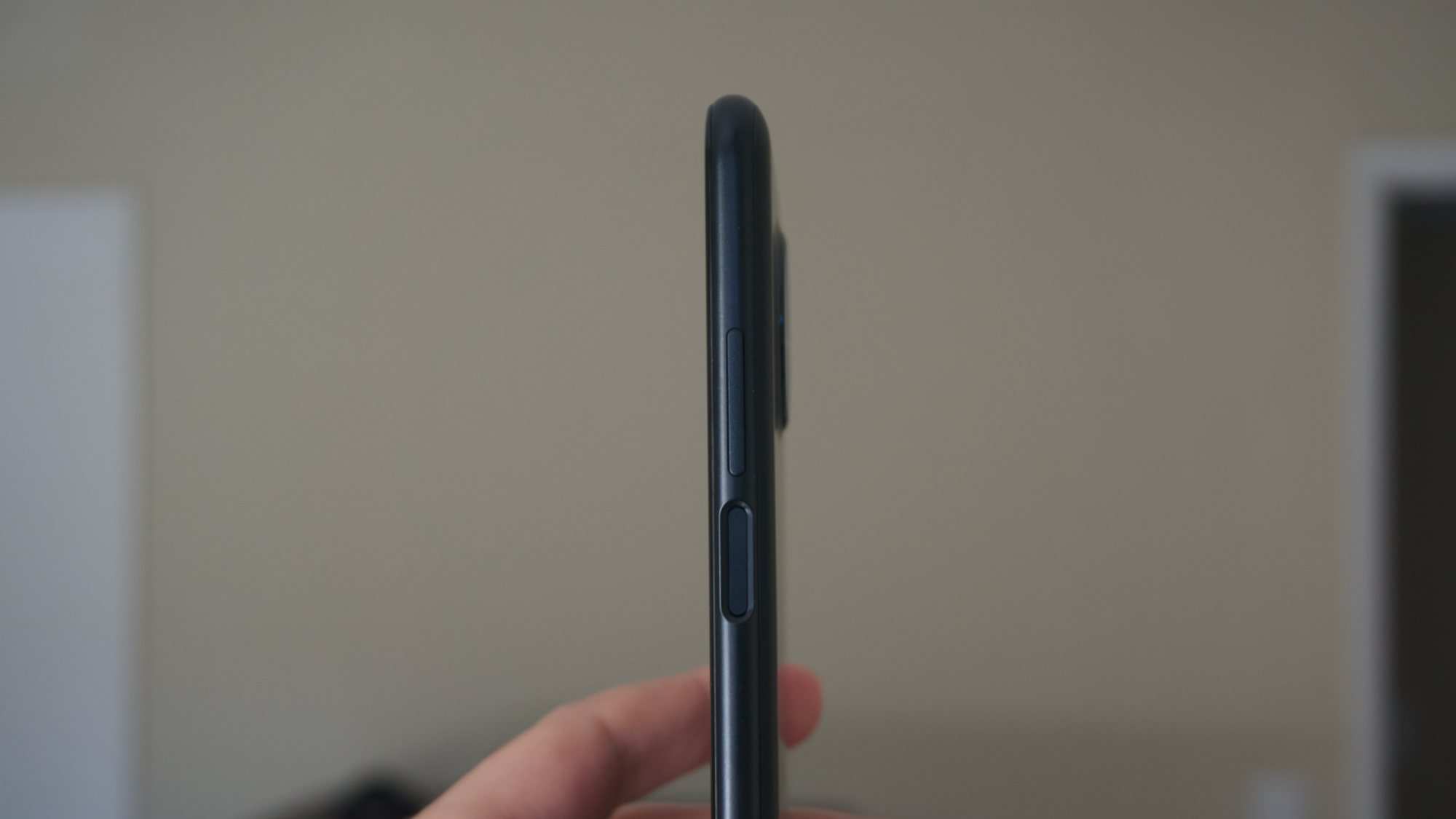
Along the edges of the Nokia X100 are a volume rocker and power button with built-in fingerprint sensor on the right side; speakers, a USB-C slot, mic, and 3.5mm headphone jack on the bottom; a Google Assistant button and SIM card slot on the left; and a mic on top. On the back, you'll find the typical circular camera module and a small LED flash slot to its left, along with the Nokia logo and an NFC chip buried beneath the plastic surface. In front, the phone has a large selfie cut-out and another Nokia logo on the large bottom bezel.
While this design has its downsides, I'll note the positives here. First, the recessed fingerprint sensor looks fantastic, reads my thumbprint quite quickly, and avoids the annoying squishiness of the XR20 power button.
I love phones with a headphone jack, but many (annoyingly) have them installed on top, causing the cord to drape over the display — a problem the X100 avoided.
The downward-firing X100 speakers hit a high, rich volume.
If you're someone that prefers phone speakers when watching content on your phone, you'll be happy to hear that the downward-firing X100 speakers hit a high, rich volume that did justice to the Lion King opening song "Circle of Life." You should have no trouble hearing content outside of public transit and you don't want to be the jerk without headphones on the MTA anyways.
Google Pay users will appreciate the NFC support here. That's not a given at this price: most budget Moto phones like the Moto G Power (2022) lack NFC. You can safely leave your wallet at home with the X100.
And the centered, symmetrical camera housing ensures the phone doesn't rock when sitting flat; that's an issue with most non-Nokia phones with upper-left camera modules, and it gives Nokia phones the edge for people who like having their phone visible on a desk during their workday.
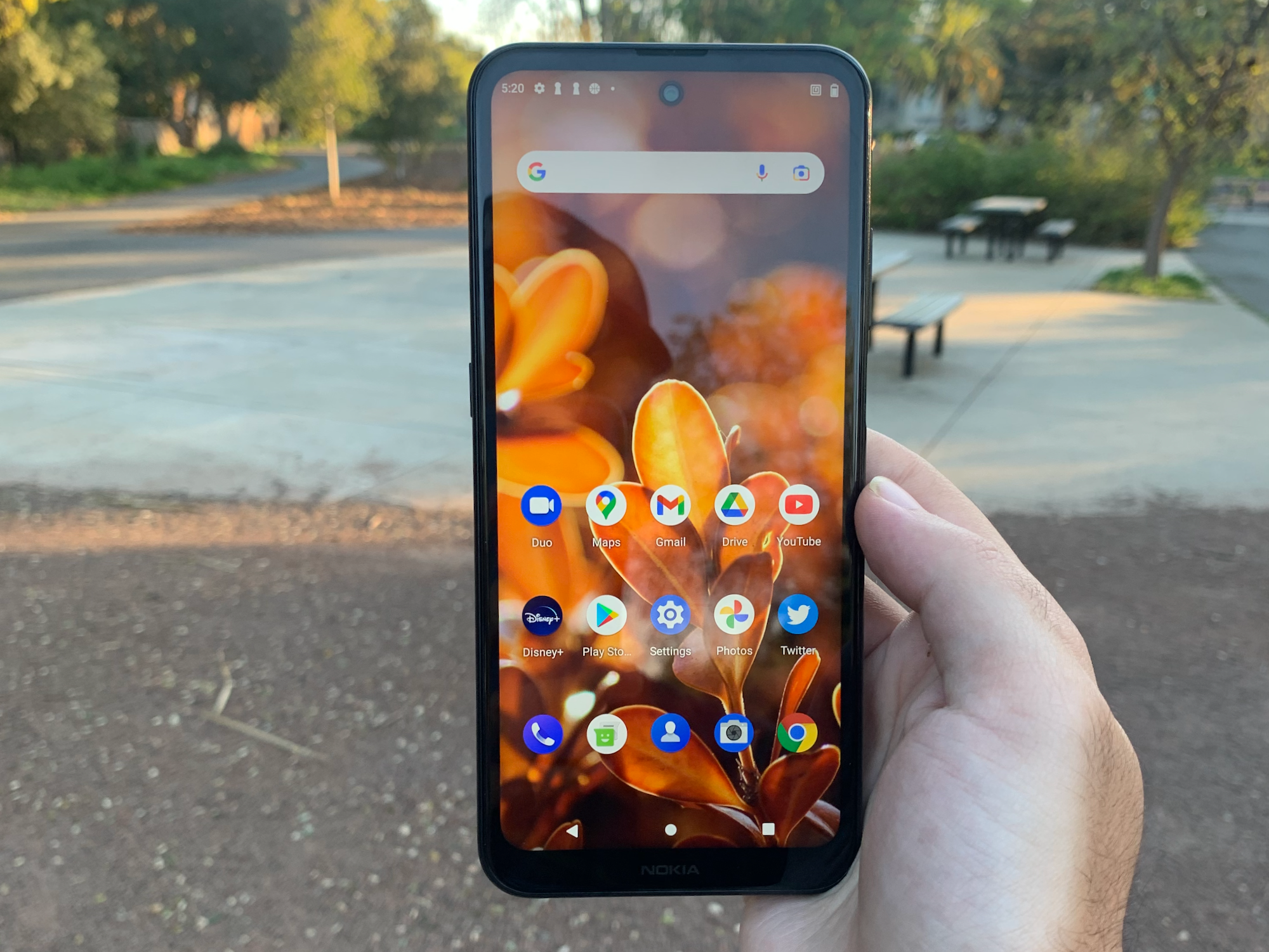
I could technically mention the battery life in the next section, as its 4,470mAh battery falls a bit short of the 5,000mAh capacity found in many budget phones in this range. But I found the battery life quite respectable even with the lower-than-average capacity. It won't hit the "two-day battery life" HMD promises on its page unless you rarely use it, but it's an all-day phone with heavy use or a 1.5-day phone with average use. That's plenty for most people.
You'll also appreciate the 18W "fast" charging. In practice, it'll likely take you between 90 minutes and two hours to fully charge your phone, but you can certainly give your battery a minor boost in just a few minutes.
You won't find any 5G phones with "good" cameras at this price, compared to what you'd see on even mid-range phones. But taking its price into account, the main rear and front cameras hold up to scrutiny. They successfully capture most details within a certain range, provided you don't need to rely much on zoom. The selfie camera also captures a solid amount of information, though I preferred the portrait mode effect of focusing more on the subject.




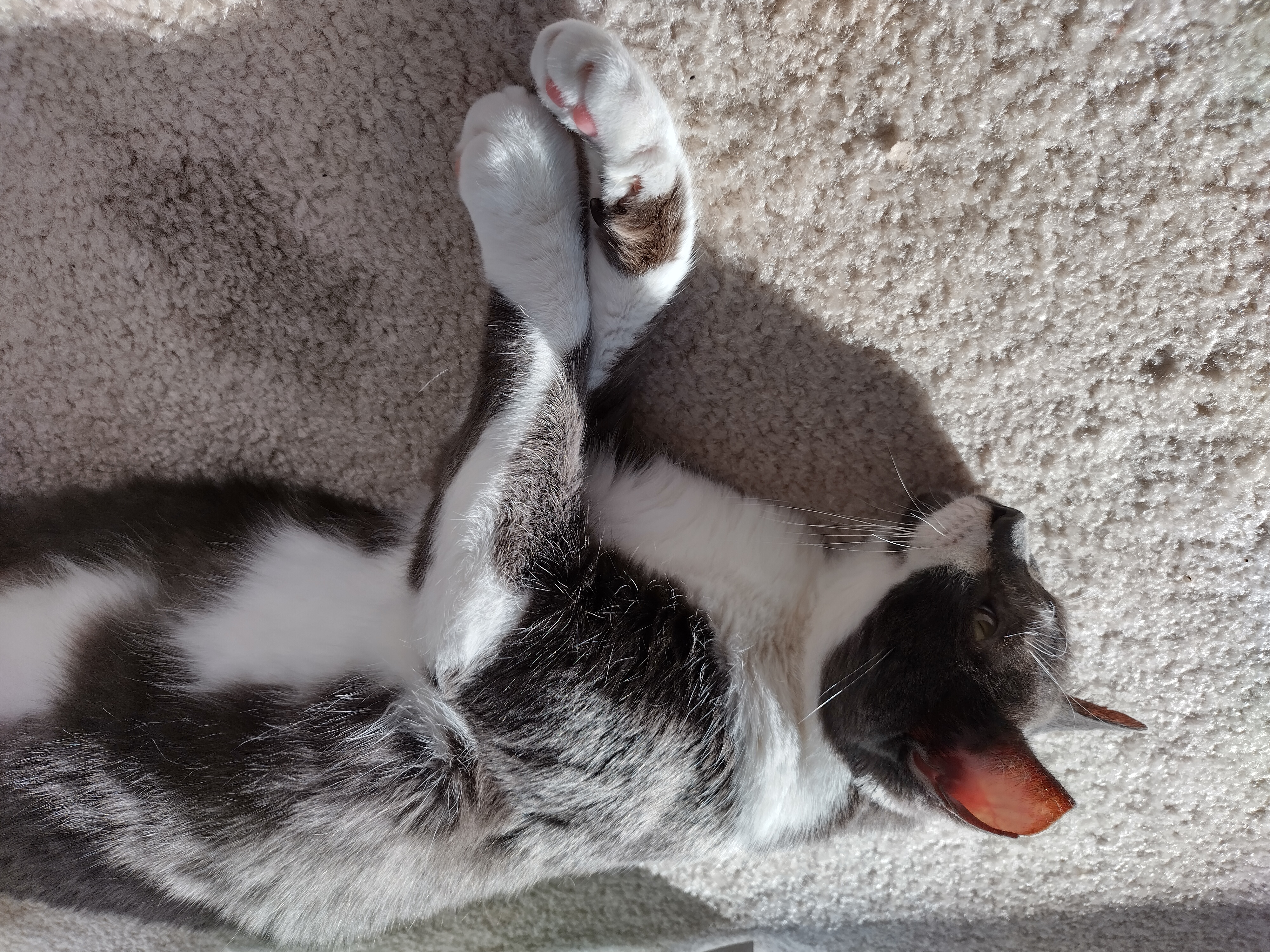


Moving on to connectivity, Android Central named T-Mobile the best 5G network and Metro the best MVNO on T-Mobile's network, so you're bound to get excellent service in most populated areas with the X100. Our 5G expert, Samuel Contreras, wrote in his T-Mobile 5G explainer that you should "make sure your new phone supports both band n71 and band n41" to get the "best possible results from T-Mobile's network." The X100 does support both.
Ultimately, if you want a cheap 5G phone from T-Mobile, the Nokia X100 has plenty of aspects that make it worth recommending.
What you won't like

If you're not a T-Mobile or Metro customer in the United States, you won't like that you can't buy the Nokia X100! I'm assuming most people reading this far are current or prospective T-Mobile customers, but it's still a shame in my book, given its quality. Most other budget Nokia phones lack an FHD display or 5G — or don't sell in the U.S. at all, in the case of the comparable X20.
That aside, I'm confused and annoyed by HMD Global's decision to launch the X100 with no planned OS updates. Nokia's near-stock, bloatware-free Android 11 software works quite well, even if it's a bit boring. But Nokia has already pushed out Android 12 to the X20 and has promised updates up to Android 15 on the XR20. Both of these phones have the same Snapdragon 480 5G SoC and 6GB of RAM. Is it really so difficult to promise a single OS update when the X100 has the same hardware?
The X100 is a great stop-gap option; you'll likely want to swap phones again by 2024.
Most people associate Android 12 with Material You, but Nokia users will care more about losing access to new features like the Privacy Dashboard and scrolling screenshots.
At least HMD promises two years of security updates, given many buyers will receive the X100 for "free" with 24 months of bill credits, that'll ensure the phone is protected until your next upgrade a couple of years from now. That's why I called the X100 a "great stop-gap option." No matter how much you'll like using it, you'll likely want to swap phones again by 2024, unless you're someone that doesn't care about updates.
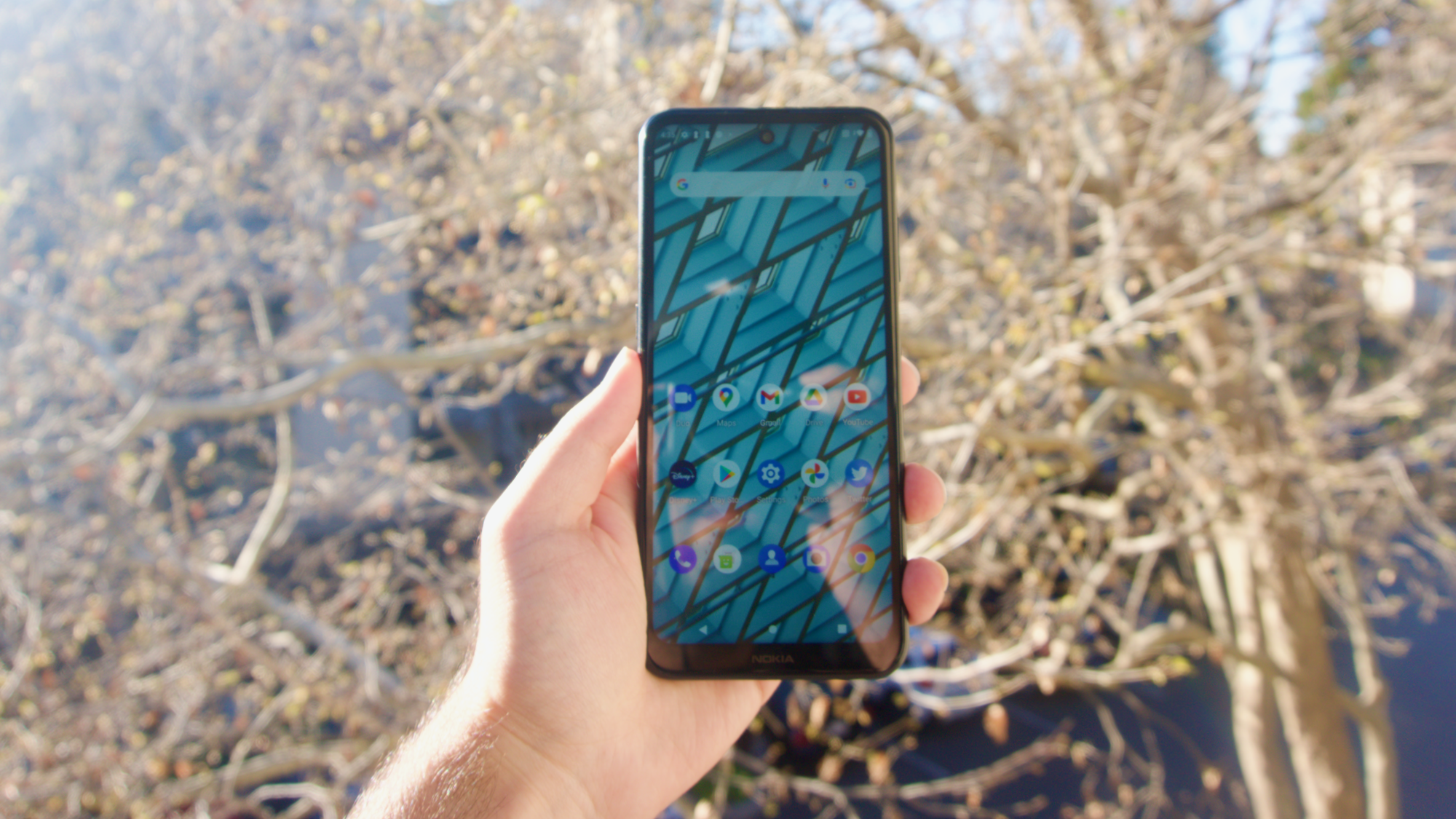
Otherwise, you can excuse most of the other Nokia X100 downsides as necessary compromises to hit its low price tag. Still, I'm going to run through the list, so you're not caught off guard with something you don't want to compromise on.
The Nokia X100 lacks an official IP rating, a common occurrence with cheap phones. You'd have to upgrade to the Pixel 4a (IP52, $350) or higher to get some protection, and that's likely more than you're willing to pay. Plus, the Gorilla Glass 3 protection should block some scratching but isn't nearly as tough as later generations.
You also won't find wireless charging here, but again, that's typically reserved for phones in the $500-and-up range.
Also similar to most budget phones, the Nokia X100 has noticeable bezels and a significant chin bezel, as well as a larger-than-average cut-out for the selfie camera. I find the lengthy 6.67-inch display helps cancel out the effect of these bezels, but anyone used to a sleeker front look will have to buy a more expensive phone.
Nokia X100's downsides are necessary compromises to hit its low price tag.
Anyone with oily fingers should prepare themselves to clean their Nokia X100 quite often, as the plastic back picks up fingerprints and smudges quite easily.
While the main 48MP camera worked well enough, the 5MP ultra-wide and 2MP macro cameras let me down. Taking close-up shots, I got much better performance out of the main camera, with or without portrait mode, while macro mode never let me find the sweet spot. And ultrawide only ever seemed to zoom out the shot while dropping huge amounts of detail compared to the main lens.
Lastly, the Nokia X100 display is best suited for indoor use, with its brightness struggling a bit to handle direct sunlight.
The competition
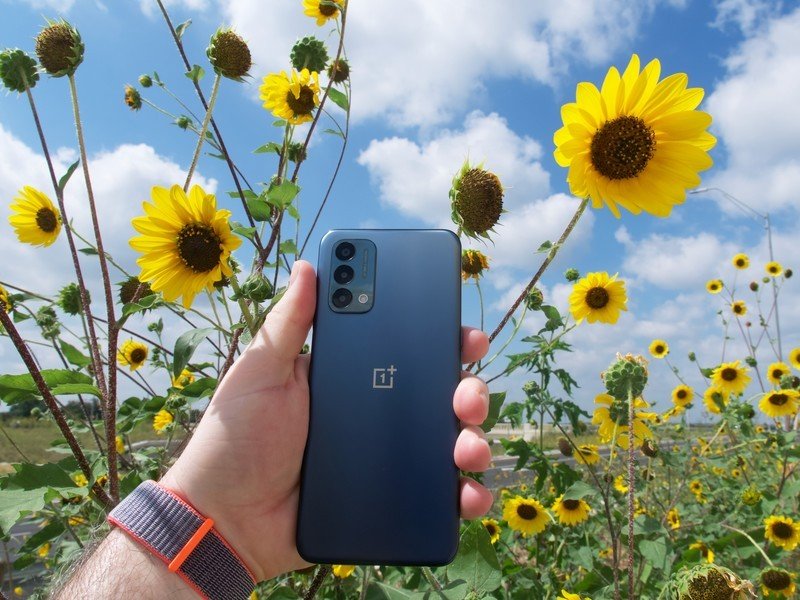
If you're a (Metro by) T-Mobile customer, you have 11 "free" phone options available as of publication, including two OnePlus Nord phones, two Galaxy A phones, and a boatload of Moto phones. Depending on your favorite phone ecosystem, you do have alternatives available to you.
The OnePlus Nord N10 5G should offer a strong alternative. The N10 5G has a slightly-upgraded Snapdragon 690, 6GB/128GB of memory with a 512GB microSD slot, and a 6.49-inch FHD display with a 90Hz refresh rate for slightly smoother scrolling. It's more expensive than the X100 and will also stick to Android 11, but the price difference won't matter if you accept T-Mobile's offer.
Otherwise, most of Nokia's competition in this space — the Galaxy A32 5G, Nord N200 5G, or various Moto phones — all make spec compromises in one way or another. But at the very least, they will jump to Android 12, leaving the X100 behind in software features.
You should also look carefully at T-Mobile's current deals that don't require a trade-in. While the X100 is free with a new line, the Pixel 6 is only $99 with a new line. It's not even fair to compare Google's new entry-level flagship to Nokia's budget model, but it goes to show that even a small budget increase could lead to major gains.
Should you buy it?
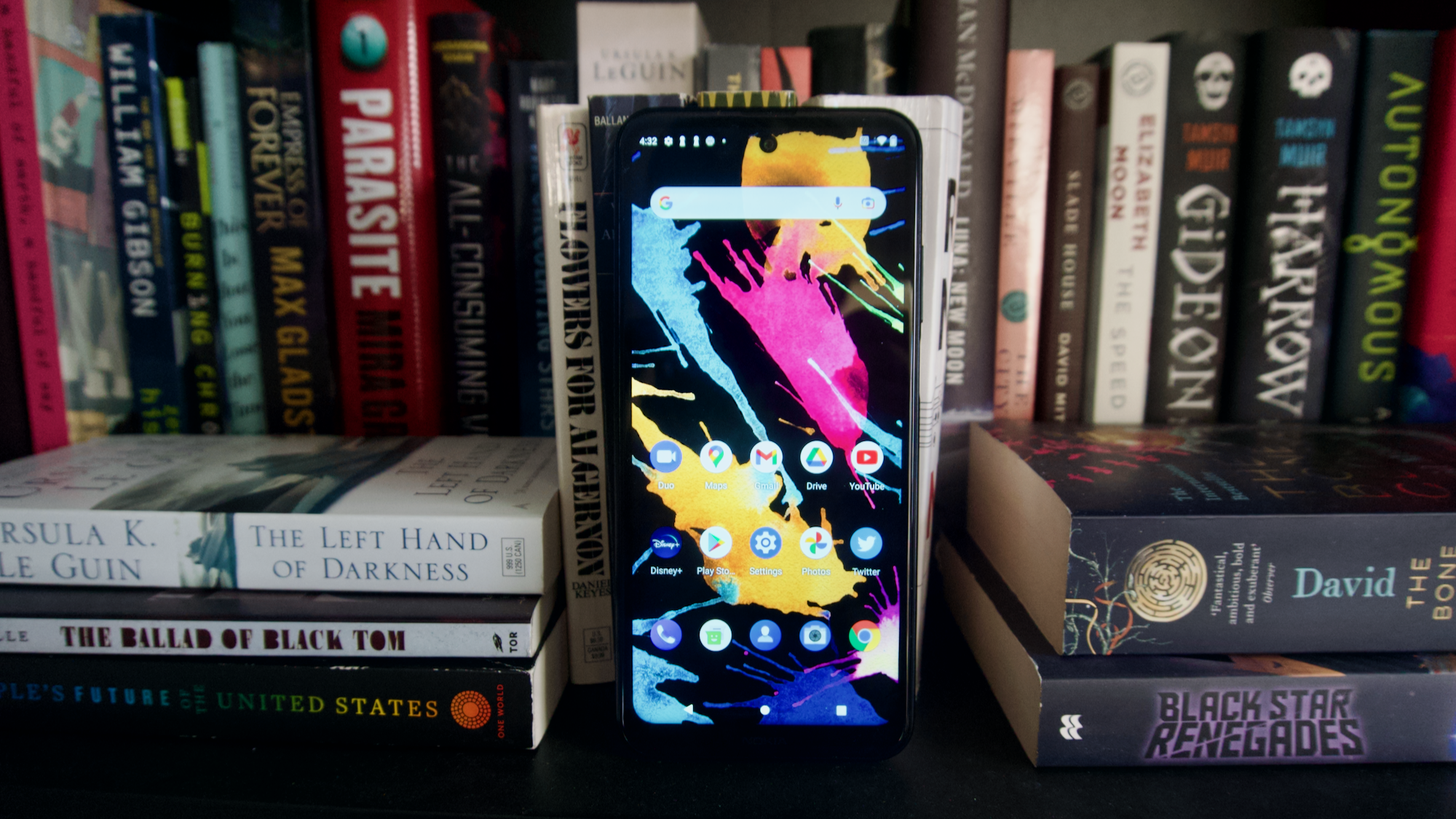
You should buy this if...
- You're a T-Mobile customer looking for a cheap upgrade
- You want an affordable phone that doesn't compromise on performance, visuals, or audio
- You need reliable all-day battery life and plenty of storage
- You're fine with Android 11 for the foreseeable future
You shouldn't buy this if...
- You're willing to spend more for features like IP protection or wireless charging
- You're not a T-Mobile customer
- You need a bright display for the outdoors or a faster refresh rate for smoother scrolling
- You want a phone that'll get the latest Android software features
- You need killer camera features
The Nokia X100 is a surprisingly robust option for bargain-chasing T-Mobile customers. It has the telltale design perks of a recent Nokia phone, from the headphone jack and microSD slot to the Google Assistant button and balanced camera housing for resting on a desk. Its performance for apps, gaming, and battery life doesn't disappoint, nor will the visual quality compared to most budget phones.
That being said, I wouldn't blame anyone who saw the Android 11 restriction as a deal-breaker, considering new phones now will launch with Android 12. I can only hope HMD Global changes its mind, given other phones with comparable hardware will receive the update.
Otherwise, you should be able to live with the X100's other downsides. If you can't, then you should prepare to spend more or trade up with an old handset to buy a more expensive model. In this price range, the Nokia X100 has very few competitors.
$252 at T-Mobile
The Nokia X100 offers reliable performance courtesy of the Snapdragon 480 5G and 6GB of RAM, powering a pixel-rich, sizeable display that's tailor-made for gaming and streaming. Plus its impressive 1,128GB of total storage will ensure you'll never run out of room.

Michael is Android Central's resident expert on wearables and fitness. Before joining Android Central, he freelanced for years at Techradar, Wareable, Windows Central, and Digital Trends. Channeling his love of running, he established himself as an expert on fitness watches, testing and reviewing models from Garmin, Fitbit, Samsung, Apple, COROS, Polar, Amazfit, Suunto, and more.
